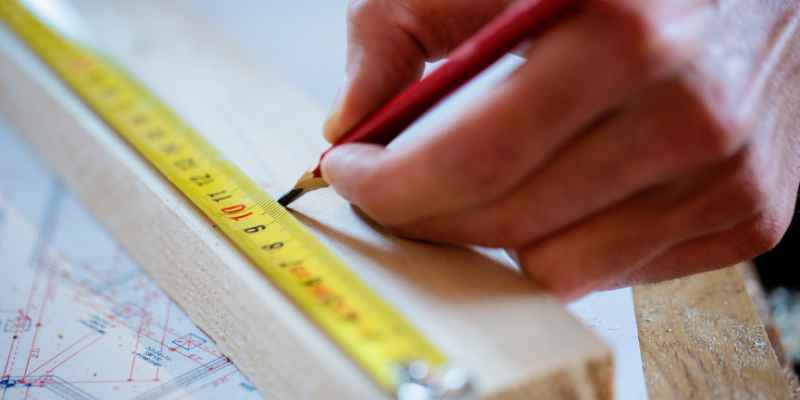A wood weight calculator estimates the weight of lumber based on its volume and wood species. It’s an essential tool for carpenters and woodworkers.
Estimating the weight of wood plays a critical role in various industries, from construction to crafts. Wood’s weight can significantly impact shipping costs, structural support requirements, and material selection for projects. Understanding the density and moisture content of wood species is vital for accurate weight calculation.
The calculator simplifies this process, requiring only the dimensions of the wood and its species to provide an immediate estimate. This tool offers a quick solution for professionals needing to assess weight for logistics, budgeting, or structural design purposes. Its convenience ensures that project planning is efficient and accurate, saving time and reducing the risk of costly errors.

Decoding The Essentials Of Wood Weight
Understanding the weight of wood becomes crucial for numerous woodworking and construction projects. An effective Wood Weight Calculator offers precision, helping craftsmen and builders ensure structural integrity and material estimation. This tool transforms complex weight calculations into simple tasks.
The Importance Of Accurate Weight Measurement
Getting the weight right is paramount for the success of any project involving wood. Whether it’s for transportation, costing, or load-bearing calculations, accuracy is key. Errors can lead to structural failures, cost overruns, and unsafe outcomes. An accurate Wood Weight Calculator helps avoid these issues, providing reliable data to work with.
- Better project planning
- Improved safety standards
- Cost-effective resource allocation
Factors Affecting Wood Density
Several factors influence the density of wood, and therefore, its weight. These variables include:
| Type of Wood | Hardwoods generally weigh more than softwoods. |
|---|---|
| Moisture Content | Wet wood can significantly increase in weight. |
| Temperature | Wood expands or contracts with temperature changes. |
The density of wood is not uniform across different species or even within the same tree, making generalizations difficult. A Wood Weight Calculator considers these factors to give a more precise measurement.
Use the Wood Weight Calculator with accurate inputs to ensure best results.
Why Crafters Need A Wood Weight Calculator
Understanding the exact weight of wood is crucial for crafters, carpenters, and woodworkers. A Wood Weight Calculator emerges as a precise tool to aid in various woodworking tasks. It helps to anticipate the weight of different wood pieces, ensuring the success of any project or construction. Whether planning a structure or shipping a wooden product, knowing the weight beforehand is essential.
Benefits For Carpenters And Woodworkers
Carpenters and woodworkers require accuracy in every aspect of their work. A Wood Weight Calculator offers:
- Precision in Project Planning: Accurate weight estimations support the design and stability of wood structures.
- Material Assessment: It helps in selecting the right wood type for a specific purpose, impacting the project’s durability and functionality.
- Safety Measures: Knowing the weight ensures proper handling, reducing the risk of accidents during construction.
- Cost Efficiency: It allows better budgeting in terms of material requirements, reducing waste and saving expenses.
Application In Shipping And Logistics
Efficient shipping and logistics are vital in the wood industry. The Wood Weight Calculator plays a key role by:
- Calculating Shipping Costs: Accurate weight leads to precise shipping cost estimates, avoiding unexpected expenses.
- Logistics Planning: It ensures appropriate vehicle selection for transportation based on the weight and size of the wood cargo.
- Load Optimization: Distribute weight evenly in the shipping container, maximizing space while maintaining safety regulations.
- Meeting Regulations: Stay compliant with road and shipping regulations regarding weight limits to avoid legal issues.
Every craftsman, whether engaged in creating a masterpiece or organizing the logistics of timber, finds a Wood Weight Calculator an indispensable tool for their trade.
How A Wood Weight Calculator Functions
Understanding how much wood weighs is crucial for various projects, from construction to crafts. A Wood Weight Calculator simplifies the task. It uses specific details about the wood to give an accurate weight estimate. Let’s dive into how these calculators work and why they’re so helpful.
Key Inputs For Calculation: Species, Volume, And Moisture Content
The wood weight calculator begins with essential inputs:
- Species: Different types of wood have unique densities.
- Volume: The amount of wood, usually in cubic feet or meters.
- Moisture Content: Wet wood is heavier than dry wood.
Enter these details, and the calculator does the rest. Let’s see the type of information it gives you.
Interpreting The Output: Understanding The Unit Of Measure
Once you input the data, the calculator processes it to display the wood’s weight. This output is typically in pounds or kilograms. Knowing the exact weight helps in choosing the right transport and handling methods.
The Wood Weight Calculator is a practical tool. It is essential for anyone needing precise calculations for wood weight.
Choosing The Right Wood Weight Calculator
Woodworking projects require precise calculations. Wood weight calculators are essential tools. They help ensure accuracy in measurements for different wood types. Making an informed choice for the right calculator can save time and resources.
Features To Look For In A Calculator
The best calculators have specific features. These features are must-haves for efficient project planning. Here’s what to check:
- Multiple Wood Species: The calculator should include a variety of wood types.
- User-Friendly Interface: It should be easy to use, even for beginners.
- Unit Conversion: The tool must offer different measurement units.
- Accuracy: It must provide reliable weight estimates.
Top Wood Weight Calculators In The Market
Choose from top calculators that professionals recommend. These stand out in the market:
| Calculator Name | Key Features | Easy to Use |
|---|---|---|
| WoodCalc Pro | Many species, High precision | Yes |
| Timber LogMaster | Volume calculation, Conversion options | Yes |
| Forest Toolkit | Included forestry tools, Multi-unit | Yes |
Selecting the right tool is essential to woodworking success. Always review the features and try out multiple calculators if possible.
Diy Vs. Digital: Methods To Determine Wood Weight
As a craftsman or woodworker, knowing the weight of wood can be crucial for both transportation and structural integrity of a project. Exploring the DIY and digital methods for determining wood weight unlocks the knowledge needed for precision and efficiency.
Traditional Techniques For Estimating Weight
Before digital tools, wood weight estimation was a hands-on affair. Let’s delve into the traditional DIY methods:
- Volume calculation: Measure length, width, and height, then multiply.
- Density knowledge: Use a wood density chart to find the wood type.
- Manual calculation: Multiply the volume by the wood’s density.
This manual approach requires time, care, and basic math skills. It’s practical for simple projects or when immediate digital resources are unavailable.
Advancements In Digital Calculation Tools
The rise of technology has provided sophisticated digital calculators. Digital tools streamline the weight calculation process:
- Software applications: Input dimensions and wood type; the app does the rest.
- Online calculators: Provide quick results on various devices.
- Mobile apps: Calculate on-the-go with a smartphone.
Digital tools offer accuracy and speed, transforming how professionals and hobbyists approach wood projects. These advanced calculators are perfect for complex or large-scale works.
Impact Of Precise Wood Measurements On Crafting
The success of a woodworking project hinges on precise measurements. Careful calculations inform cuts and assembly, serving as the blueprint for outstanding craftsmanship. Integrating a Wood Weight Calculator dramatically enhances this accuracy. This tool helps crafters gauge the weight of different wood types, guiding the selection process for an array of projects. Understanding the impact of precise wood measurements illuminates the path to exceptional crafting results.
Improving The Quality Of Finished Products
Precision is the foundation of excellent woodworking. A Wood Weight Calculator empowers artisans with:
- Accurate wood selection: Matching the right wood to a project is crucial. Specific gravity data helps determine suitable wood for furniture or decorative pieces.
- Consistent dimensions: Uniform pieces fit better. This creates a pleasing aesthetic and structural integrity.
- Balance and stability: Calculating weight ensures products are balanced. Proper weight distribution prevents tipping or uneven wear.
Cost-efficiency And Material Conservation
Using a Wood Weight Calculator ensures economical use of materials. This results in:
- Less waste: Calculate exact amounts of wood needed, reducing offcuts and scraps.
- Better budgeting: Estimate costs more accurately by knowing how much wood is required beforehand.
- Environmental responsibility: Conserve resources by avoiding overbuying and utilizing wood effectively.
Frequently Asked Questions On Wood Weight Calculator
How Do You Calculate The Weight Of Wood?
To calculate the weight of wood, multiply its volume by its density. First, measure length, width, and height. Then, obtain the wood’s density from a reference table.
How Do You Calculate The Weight Of A Tree?
To calculate a tree’s weight, estimate its volume using the diameter and height, and multiply by the species’ average wood density. For precise data, consult the specific gravity values of wood published by forestry authorities.
How Much Does A 2×4 Weigh?
A standard 2×4 lumber piece, measuring 8 feet long, typically weighs around 9-17 pounds, depending on the wood’s moisture content and type.
How Do You Weigh Lumber?
To weigh lumber, first determine its volume in board feet, then multiply by the wood’s species-specific weight per foot. Use a lumber scale for accuracy. Always adjust for moisture content, as wet wood is heavier than dry.
Conclusion
Wrapping up, a wood weight calculator proves invaluable for crafting and construction projects. It ensures accuracy and helps avoid material waste. Embracing this digital tool can lead to seamless execution and a clearer understanding of your wood-related endeavors. Trust in technology to optimize your woodwork plans.


